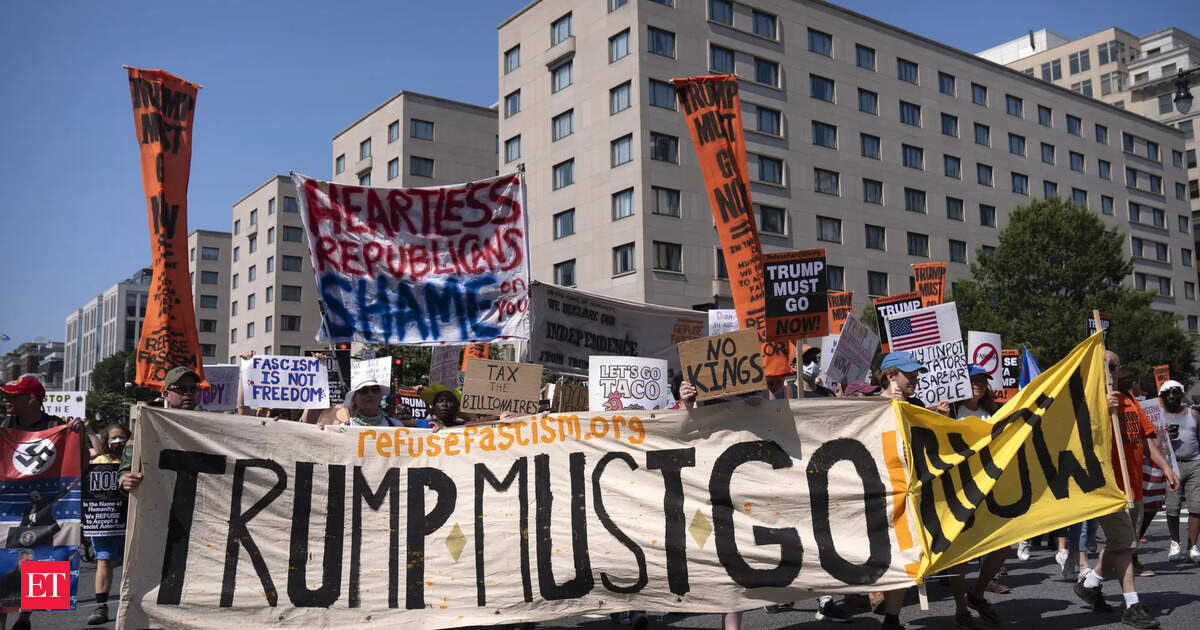Wyoming showed the highest support with a net approval of +44 percent, followed by West Virginia at +36 percent. On the other end of the spectrum, Hawaii reported a staggering –47 percent net approval and Maryland followed with –41 percent.
Broader national trend
These state-level numbers reflect a broader national trend. A YouGov/Economist poll conducted between June 20 and 23 found that 40 percent of Americans approved of Trump’s performance, while 54 percent disapproved, resulting in a net rating of –14.
A separate poll by the Tyson Group, conducted June 25 to 26, found a slightly narrower gap, with 45 percent approving and 51 percent disapproving, for a net of –6.
While the president still maintains a strong base in many Republican-leaning states, his overall national approval has struggled to break into positive territory.
The timing of the data is particularly significant on July 4. Traditionally, a unifying celebration of American independence was marked this year by political tension and widespread protest. Demonstrations took place across the country as part of the “Free America Weekend,” with large gatherings in cities such as Los Angeles, Houston, Tampa Bay, and New York City. The protests were driven by opposition to recent White House decisions, including deep cuts to public programs under the administration’s “One Big Beautiful Bill” and new restrictions on immigration and reproductive health access.Economy – A key issue
Experts believe the economy remains the key issue shaping Trump’s approval.
Scott Lucas, a professor of international politics at University College Dublin, noted that economic uncertainty and tariffs have played a central role in pushing approval ratings down in many states.
Richard Johnson, a senior lecturer in US politics at Queen Mary University of London, offered a broader view, saying that while Trump’s numbers remain net negative, they reflect a relatively high “floor” of support in an era of intense political polarization, higher, he noted, than the ceiling of his predecessor, Joe Biden, after 2021.
As protests continue and more are planned, such as the “Good Trouble Lives On” events on July 17 in honor of civil rights icon John Lewis, Trump’s approval ratings will remain sensitive to economic trends, foreign policy decisions, and civil unrest.

